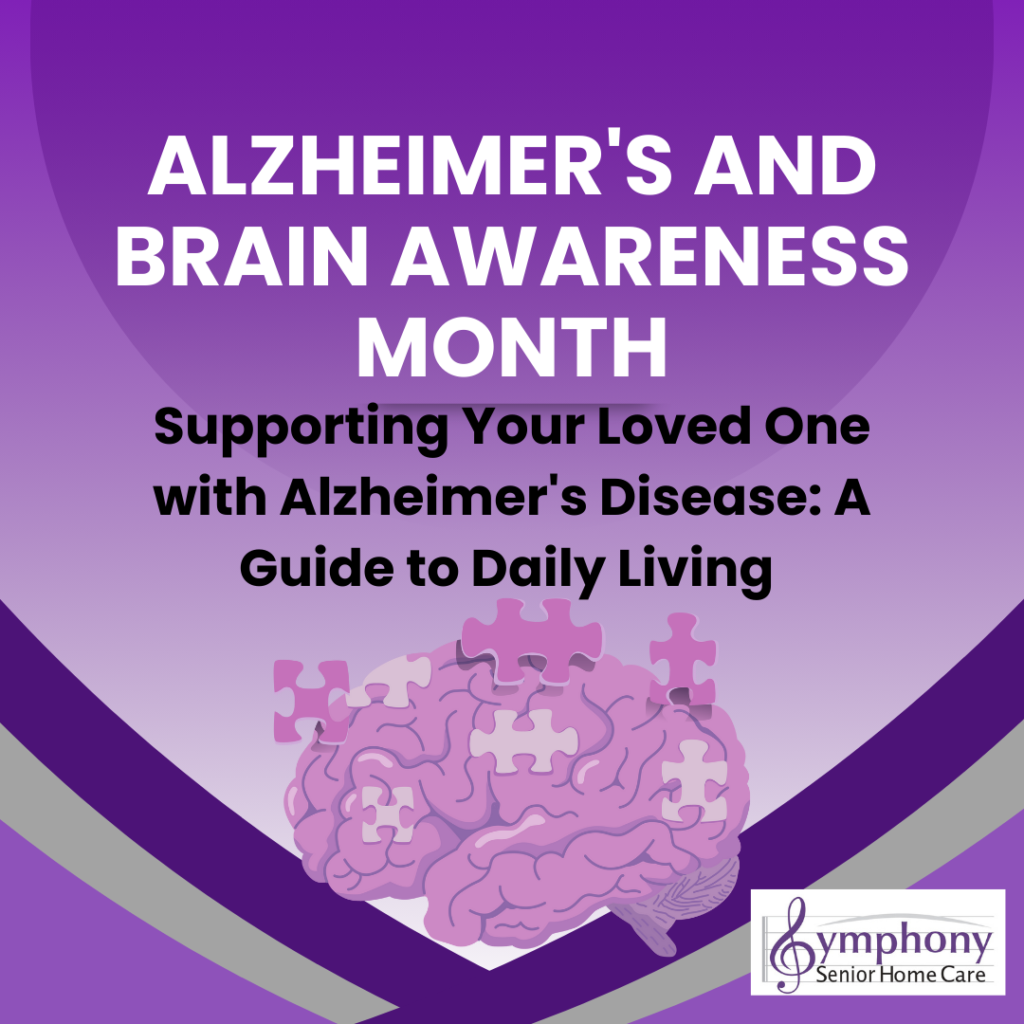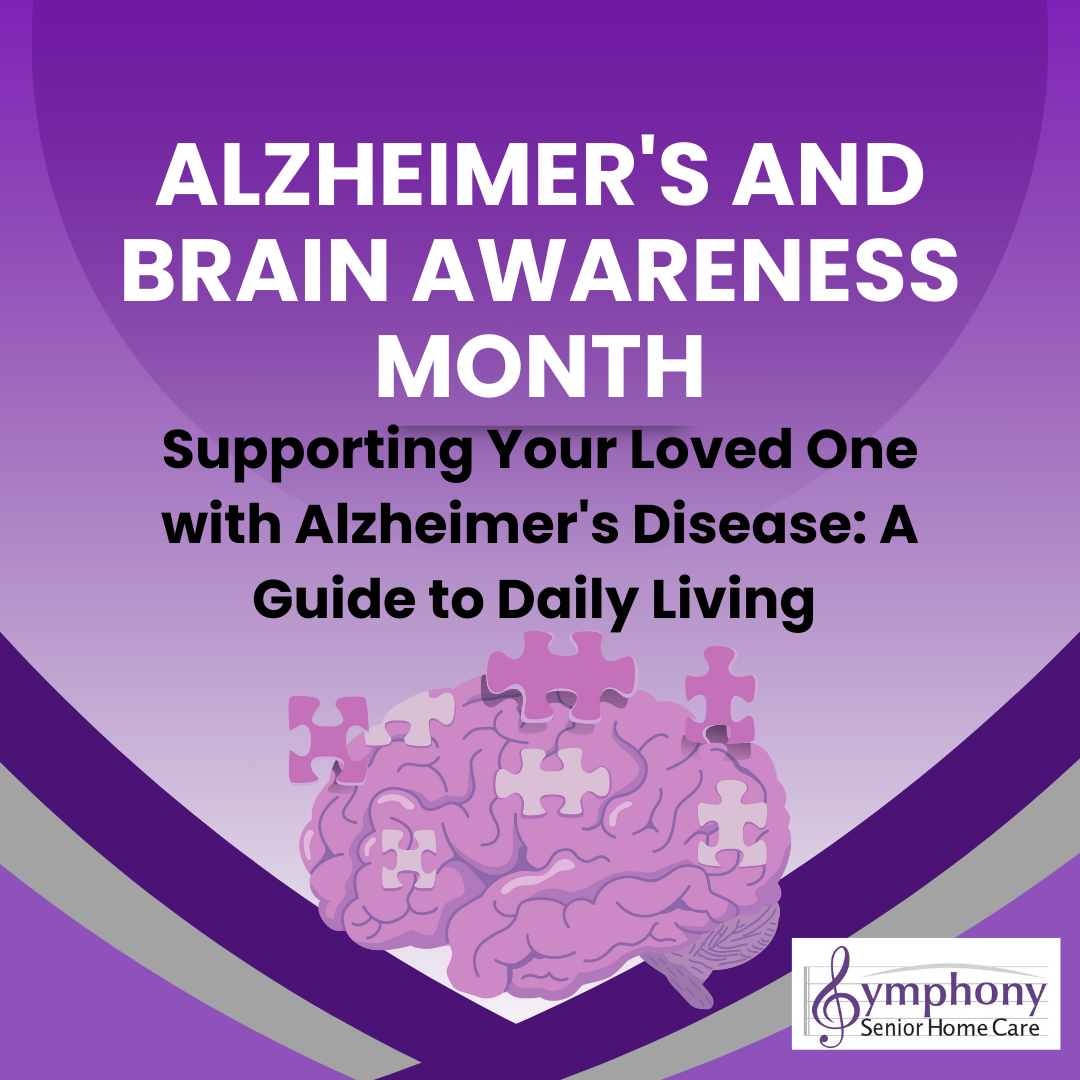Alzheimer’s & Brain Awareness Month
Continuing our series on Alzheimer’s disease awareness, this blog post from Symphony Senior Home Care focuses on supporting your loved one with Alzheimer’s disease in their daily lives. As the disease progresses, providing care and maintaining a sense of normalcy becomes increasingly important. Here, we’ll offer practical tips to assist your loved one with daily living activities.

Creating a Safe and Secure Environment:
- Declutter and minimize tripping hazards. Ensure walkways are clear and furniture is strategically placed for support.
- Label cabinets and drawers. This can help them locate familiar items independently.
- Install safety features. Consider grab bars in bathrooms, nightlights, or stovetop safety knobs.
- Maintain a consistent routine. Regular schedules for meals, sleep, and medications can provide comfort and reduce confusion.
Enhancing Communication and Engagement:
- Use simple language and short sentences. Speak slowly and clearly, and avoid overwhelming them with too much information.
- Focus on nonverbal communication. Facial expressions, touch, and maintaining eye contact can be very effective.
- Validate their feelings. Acknowledge their emotions and concerns with empathy and patience.
- Engage in familiar activities. Encourage hobbies or activities they enjoyed in the past, even if they require adaptations.
Considering Additional Support:
- Explore in-home care services. Symphony Senior Home Care can provide companionship, medication reminders, and assistance with daily tasks, allowing your loved one to remain safely at home for longer.
- Connect with support groups. Sharing experiences and finding emotional support from others navigating similar challenges can be invaluable.
- Research memory care strategies. There are various techniques to help manage memory loss and promote well-being.
Remember, you are not alone. By creating a supportive environment, adapting daily routines, and seeking additional resources, you can empower your loved one with Alzheimer’s disease to live a life with dignity and purpose.
In our next blog post, we’ll address the importance of self-care for those supporting loved ones with Alzheimer’s disease.

